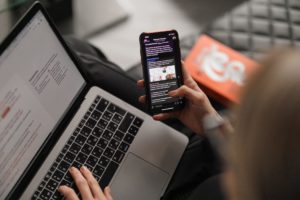
Just a year and a half ago, businesses and consumers watched the world change almost overnight — and, just in the last several months, we’ve watched the world finally start to reopen. How can your organization adjust to the aspects of modern life that won’t “go back to normal” after the pandemic? We held interviews with three experts in our panel to tap into their career experience and gauge their thoughts on a shifting future due to COVID trends that have emerged. Read on for insight from a new expert in our panel, Steve, who has worked for decades in disaster preparedness for business continuity.
How Do Businesses Stay Afloat?
Steve’s background includes 37 years in telecom and data networks engineering and operations, management systems, centers, and process strategy, where network security has always been part of network design. He has been directly involved in business continuity, network disaster recovery, crisis management, and operational resiliency since 2004, including a decade with the world’s largest telecoms company and six years as an independent consultant. Since that time, Steve’s career has blossomed into many aspects of business continuity, including information sources and people’s reactions to emergency declaration, which encompasses mandates from the federal government and local administrations. Much of Steve’s work has addressed emotional reactions to disaster, where businesses and consumers’ personal priorities include safety, comfort, and forestalling fear. Most of these initial fears pertained to the coronavirus itself: More than anything, the health of our families, particularly aging or vulnerable relatives. Importantly, though, secondary concerns included the daunting, sudden transition to working from home for a huge percentage of employees when the COVID era began.
On such a tight timeline, this major shift in lifestyle balance presented a surprise and, in some cases, a difficult transition, for many workers. On that subject, Steve used his deep, varied experience in crisis preparedness to express the importance of resiliency to failure during the WFH migration. During this time, businesses had little choice but to transition swiftly to allow workers to use two computers in two locations. This movement raised new security questions, and it meant employees needed to be braced differently for “acts of nature” and other major issues. Each of these disruptions could force a business to halt for 2-3 months. In response to the COVID crisis, large, medium and small businesses have all spent the last year making swift and effective adjustments — and now they’re much more comfortable with how to handle a pandemic. Experience informs future readiness. Preparedness-wise, businesses know what to do if (heaven forbid) the federal government should issue an emergency state in the future.
On that subject, Steve used his deep, varied experience in crisis preparedness to express the importance of resiliency to failure during the WFH migration. During this time, businesses had little choice but to transition swiftly to allow workers to use two computers in two locations. This movement raised new security questions, and it meant employees needed to be braced differently for “acts of nature” and other major issues. Each of these disruptions could force a business to halt for 2-3 months. In response to the COVID crisis, large, medium and small businesses have all spent the last year making swift and effective adjustments — and now they’re much more comfortable with how to handle a pandemic. Experience informs future readiness. Preparedness-wise, businesses know what to do if (heaven forbid) the federal government should issue an emergency state in the future.
How Do Citizens Get Their Crisis Information?
To that point, Steve had expert insight to share regarding the intersection between consumers’ sources of information. Those sources often start with broadcast media, then spread out to social media, with government information and mandates to follow. Unfortunately, each of these avenues is subject to inaccuracy. (Shocking, right?) Local health departments must implement procedures, which takes time and features some discrepancy as plans and information are disseminated in a “push-down chain” from the federal level to state to local. Steve played a managerial role over 9-10 months in mitigating H1N1 effects for businesses, so he was able to explain how the U.S. learned a lot from H1N1… but didn’t really implement those insights in response to the COVID crisis. Steve explained his experience and methodologies in the foundations of planning, which include testing through simulations and practice exercises in the telecommunications sphere — first for avian flu, then for H1N1. Each of these crises demanded extensive prework and then launch following federal declarations of emergency, as well as workers’ emotional responses to media announcements.

When it comes to federal communications and decision making, Steve observed that COVID is “a political independent” — that, even though the virus or associated crisis doesn’t adhere to a party, this one issue encompasses budgets, tax policy, education, and immigration. The whole subject of education has already yielded questions of upheaval, including major questions about equity, equality, parents working from home, and students learning remotely.
Looking Forward: Expert Insight to Boost Your Business
How have businesses adapted to meet the demands and constraints of the COVID trends and this era? What trends can you anticipate as things start to return to normal? What if they don’t? What can we expect, and how can we stay prepared? If you’re looking for advice, you can find the thought leader you need in the Intellex network, and keep your eyes open for the next blog installment: An interview with a leading consumer psychologist in the United Kingdom regarding the impact of the COVID era on purchasing, decision making and emotion.
Written by Zaq Baker, Senior Manager, Intellex.
